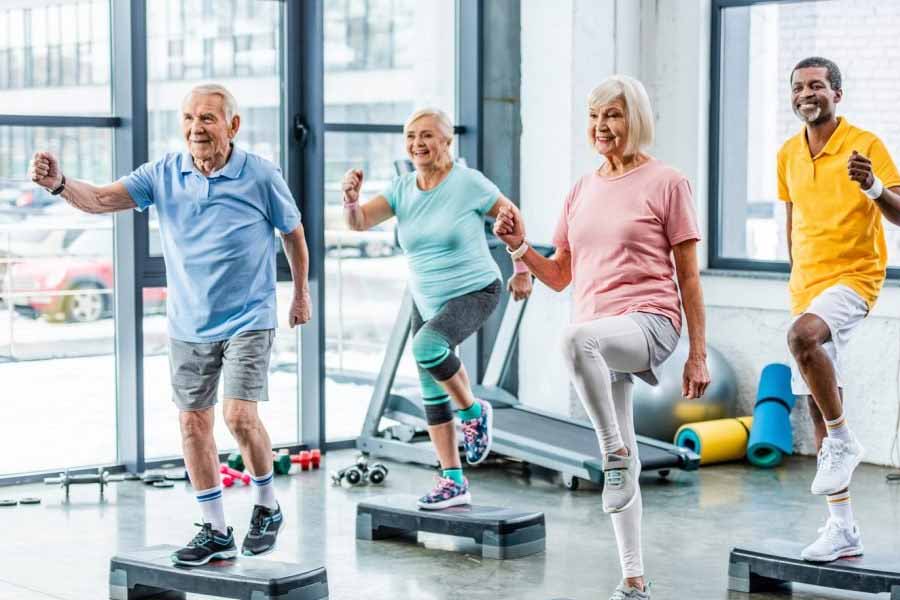You hear the words aerobic exercise and think of treadmills and sweat. I get it. The picture isn’t wrong, just incomplete. Aging doesn’t have to shrink your life to careful steps and early nights. Movement can redraw the map, slowly, kindly, one walk at a time. Let’s make the science human, and the plan doable.
The body you live in
Getting older changes the tempo, not the song. Muscles get shy, bones ask for more attention, balance plays tricks. You can nudge all three with small, steady choices. Researchers keep finding that movement trims the noise from aging cells. That quiet helps joints glide and mornings feel less heavy. A physician at Mayo Clinic explained it beautifully in a talk I loved. Even short daily bouts improve strength, stamina, and mood in real people. Consistency wins here, not heroics, not pain.
Think ten minutes after breakfast and again before dinner. Add a light stretch while the kettle hums. Stack these minutes, and your week looks different. Your confidence grows alongside your calves. That’s the part no chart captures, yet everyone feels. Make room for one more habit tomorrow and see what shifts. Let your routine become proof that change can be gentle.
Aerobic exercise
Heart health loves rhythm. So does your brain. Walking, cycling, or swimming deliver oxygen like a calm tide. Blood vessels open, lungs learn to stay patient, thoughts clear a little faster. Pick a pace that lets you talk without gasping. That’s a sweet spot you can keep. Use landmarks instead of numbers if screens bore you. From the bench to the bakery, then back home. Music helps on low-motivation days; nature sounds work for others.
If joints complain, try a pool and feel the pressure lift. Keep a simple log you’ll actually read later. A notebook on the counter beats a forgotten app. You’ll spot patterns, wins, and honest breaks. Sneak one mention into your calendar notes so you remember: aerobic exercise keeps the lights bright. That reminder turns “maybe later” into a quick loop around the block. Momentum does the rest, quiet and faithful.
Why strength still matters
Strength isn’t vanity; it’s freedom. Carrying groceries, rising from chairs, catching yourself during a wobble. Those moments ask for muscle, not drama. Start with bodyweight moves you can trust. Sit-to-stands from a chair, slow wall push-ups, heel raises at the counter. Bands add friendly resistance without scaring your back. Two days a week is a beautiful start. Aim for good form and an easy smile. Bones notice, especially hips and spine.
Balance thanks you with fewer stumbles and softer landings. Pair every push with calm breath and slow control. Joints feel safer when you’re not rushing. If you like toys, keep a kettlebell by the sofa. One set during commercials is still a set. Write it down, pat yourself on the shoulder, and remember this too supports aerobic exercise on other days.
Brains love movement
Your brain thrives on novelty and practice. Movement gifts both. Circulation improves, and with it, focus and recall. People report quicker names, steadier moods, and a kinder inner voice. Neuroplasticity sounds technical; it feels like “oh, that came easier.” Layer small challenges inside your week. Walk a new street. Trade earbuds for a partner chat. Try a simple dance video and laugh at the learning curve.
Protect sleep like you protect your passwords. Deep rest locks in the benefits you earned. If you struggle to wind down, stretch by the bed for five minutes. Your nervous system loves rituals more than lectures. Write a two-line journal about how you felt after moving. You’ll want more of that feeling tomorrow, which helps you keep doing aerobic exercise with a lighter heart.
Make it fit your day
No gym required. Think puzzle pieces, not a perfect block. Five minutes of stairs after lunch counts. So does gardening with a little extra squat. Put a band in the kitchen drawer for sauce-simmer squats. Invite a friend to walk and call it a standing date. Rainy day? March in place during two songs. Add gentle balance drills while the coffee drips. Stand on one foot, then switch when the machine beeps. If you use a cane, practice safe weight shifts near a counter.
Celebrate the smallest promises kept. They build a story you can trust. Hydrate, breathe, and choose shoes your feet adore. Check with your clinician if you’re managing conditions or meds. That green light lets you lean in. Keep the door open for joy, not just duty. When the day feels heavy, start anyway, and let aerobic exercise carry the first five minutes.
Start small, stay steady
Beginnings are fragile. Protect them. Pick three anchor habits for the next month. A morning walk, a ten-minute strength circuit, a bedtime stretch. Set reminders that feel like favors, not scolds. Pair movement with pleasures you already love. Sun on your face. A favorite playlist from another decade. Tea waiting when you return. Track effort, not perfection. Miss a day and skip the guilt parade.
Begin again, the most underrated skill in health. Invite family into the rhythm if that helps. Kids make great coaches and honest scorekeepers. Share your wins with someone who claps loudly. We all need witnesses. By the time the season turns, you’ll feel it in every staircase. You’ll notice steadier mornings, clearer thoughts, kinder joints. That quiet pride you carry home is the best proof. Keep going, and let aerobic exercise be the thread that ties it all together.
